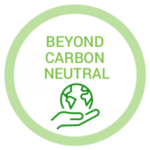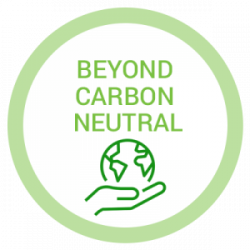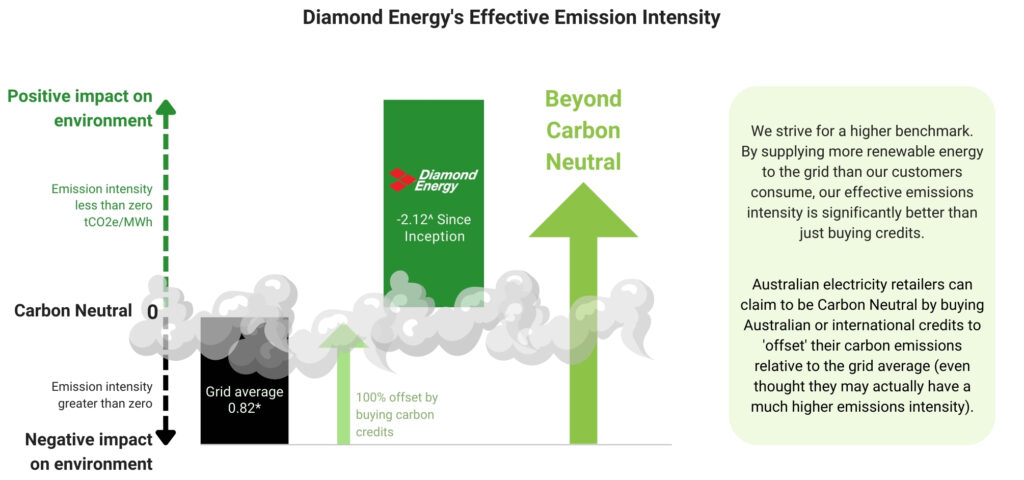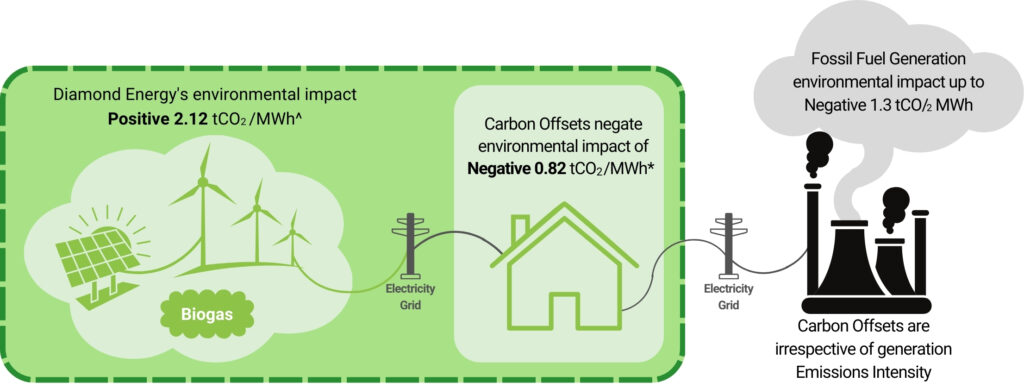

From inception, we have delivered more electricity sourced from Australian renewable energy generators to the grid than our customers consume.^
As we continue to support more renewable energy in Australia, we will strive to have a positive impact on our environment and go beyond carbon neutral.
“Historically, the net greenhouse gas emissions abatement from Diamond Energy’s renewable energy generators exceeds the GHG emissions arising from the electricity consumed by our customers.”^

“Diamond Energy owned and controlled generation assets deliver a lower emission intensity than the grid average. Since inception our assets have delivered a net abatement of 2.12 tonnes of carbon dioxide equivalent per MWh of generated electricity. This is even greater if we include the avoided emissions that would otherwise have been released from organic waste.”^

Fossil fuel generation typically delivers an emissions intensity up to 1.3 tonnes of carbon dioxide equivalent per MWh (tCO2/MWh) of generated electricity** and the grid average is +0.82 tCO2/MWh (2007-2023 average)*.
In September 2020, we committed to achieve targets under the SBTI.
Managing Director Mark Bertoncello commented “Diamond Energy is meeting and exceeding its SBTI commitment to reduce its Scope 1 and Scope 2 GHG emissions below 30% by 2030”*.
“We are proud to have set our target at the lowest possible formal target of “1.5 degrees” and commit to reduce absolute Scope 1, Scope 2 and Scope 3 GHG emissions by 2030 from a 2018 base year.
Our generation assets, since inception, avoid more emissions of carbon dioxide equivalent CO2 gases than is required just for generation alone. Our renewable generation assets, owned or affiliated, allow the avoidance of additional, significant methane emissions. The consequence of this growing portfolio is that since inception, we have contributed additional CO2e avoidance beyond that required by ‘zero’ impact renewable generation.
DE states that it is ‘meeting and exceeding’ its SBTI goal. DE has set a goal for 2030 which is better than its 2018 baseline on an absolute emission basis.
The Letter of Opinion Auditing Diamond Energy’s Renewable Energy and Emission Footprint Performance, April 2024 can be seen here.